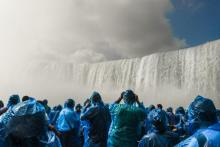Editorial by Jorge Aguero
Do you know someone who is always late for meetings? That person might even be you. There is Someone, however, who is always on time. You know who I’m referring to. But when it comes to God’s timing, many draw the wrong conclusion. Personal hardships or calamities and suffering can cause one to question His good and perfect plan.
Some have lost trust in Jesus’ promise of His second coming, because, in their opinion, He is late. Second Peter 3:9 gives insight into this apparent delay:







